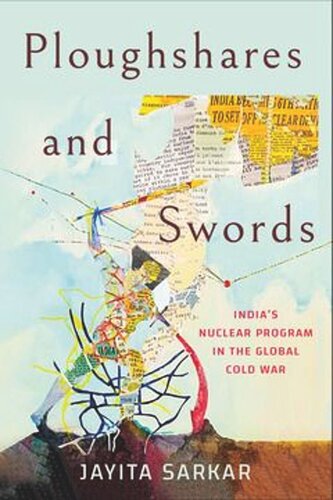

Most ebook files are in PDF format, so you can easily read them using various software such as Foxit Reader or directly on the Google Chrome browser.
Some ebook files are released by publishers in other formats such as .awz, .mobi, .epub, .fb2, etc. You may need to install specific software to read these formats on mobile/PC, such as Calibre.
Please read the tutorial at this link: https://ebookbell.com/faq
We offer FREE conversion to the popular formats you request; however, this may take some time. Therefore, right after payment, please email us, and we will try to provide the service as quickly as possible.
For some exceptional file formats or broken links (if any), please refrain from opening any disputes. Instead, email us first, and we will try to assist within a maximum of 6 hours.
EbookBell Team

4.8
94 reviewsIndia's nuclear program is often misunderstood as an inward-looking endeavor of secretive technocrats. In Ploughshares & Swords, Jayita Sarkar challenges this received wisdom, narrating a global story of India's nuclear program during its first forty years. The book foregrounds the program's civilian and military features by probing its close relationship with the space program. Through nuclear and space technologies, India's leaders served the technopolitical aims of economic modernity and the geopolitical goals of deterring adversaries.
The politically savvy, transnationally-connected scientists and engineers who steered the program obtained technologies, materials, and information through a variety of state and nonstate actors from Europe and North America, including both superpowers. They thus maneuvered around Cold War politics and the chokepoints of the nonproliferation regime. Hyperdiversification increased choices for the leaders of the nuclear program but reduced democratic accountability at home. The nuclear program became a consensus-enforcing device in the name of the nation.
Ploughshares and Swords is a provocative new history with global implications. It shows how geopolitical and technopolitical visions influence decisions about the nation after decolonization.